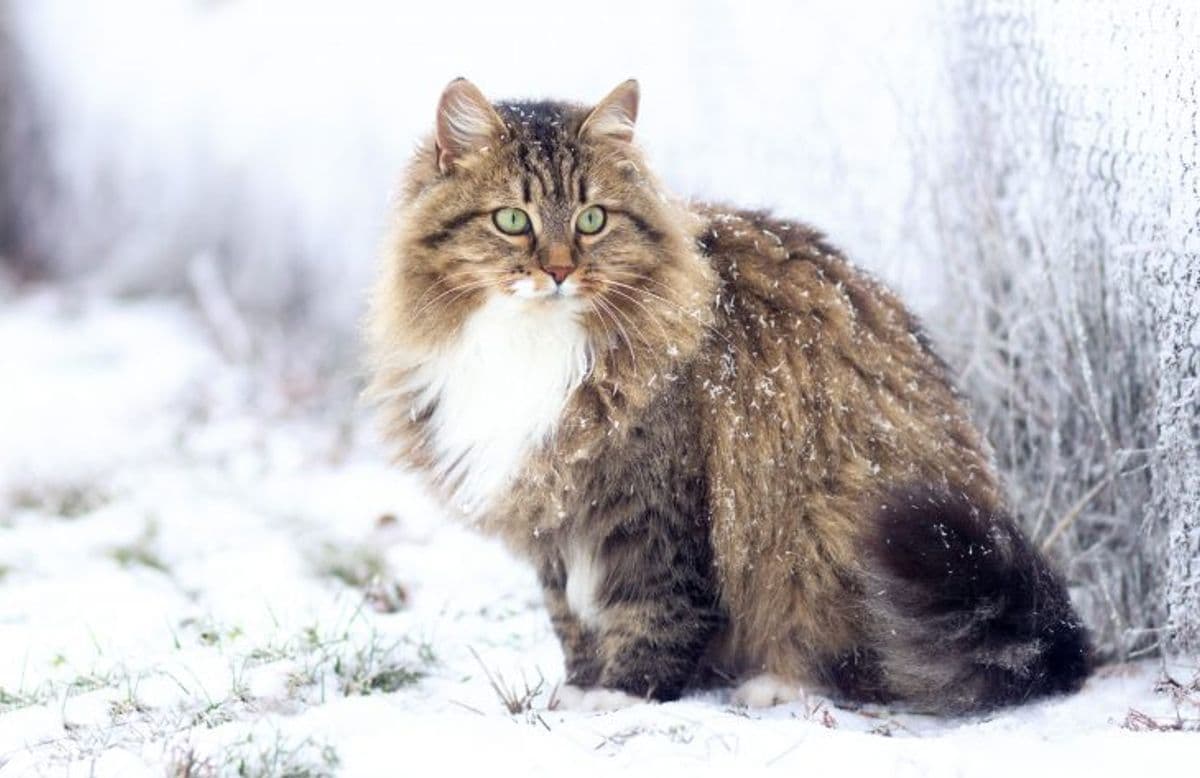Is the Siberian Cat Hypoallergenic? Advice for Allergy-Suffering Families

If you’ve always dreamed of having a cat but dreaded the sneezing, itchy eyes, and wheezing that usually comes with it — you’ve probably heard whispers about Siberian cats being “hypoallergenic.” And honestly? It’s not just hype.
We’ve had our fair share of allergy-prone friends ask about this breed, and after digging into the science and spending time with Siberians ourselves, here’s what we’ve learned — from real experience, not just marketing claims.
Are Siberian Cats Really Hypoallergenic?
Let’s get this straight: no cat is 100% hypoallergenic. But Siberians come impressively close.
The culprit behind most cat allergies is a protein called Fel d 1, which is found in cat saliva, skin, and dander. When cats groom themselves, that protein ends up on their fur — and eventually in the air, on your couch, and yes, up your nose.
Siberians, however, naturally produce much lower levels of Fel d 1 compared to most other breeds. Even male Siberians — who usually produce more of the allergen — tend to be lower than average. That’s why many people with mild to moderate cat allergies can tolerate being around them, and in some cases, even live happily with one.
Of course, everyone’s different, so it’s essential to spend time with a Siberian before bringing one home. If possible, hang out with a breeder and meet both the mom and the kittens. Give yourself a solid 30–60 minutes up close and personal — and see how your body reacts.
Living with a Siberian When You Have Allergies
So let’s say you fall in love with a sweet, fluffy Siberian and decide to bring them home. What now?
Here’s how we (and others we know) manage allergies while living with this breed:
1. Minimize Allergens at the Source
-
Brush regularly. Siberians have thick, semi-long coats that surprisingly don’t mat easily. Brushing them a few times a week helps control shedding and dander. If you’re allergic, see if someone else in the house can handle the grooming.
-
Bath occasionally. Yep, cats and baths don’t usually mix — but a monthly gentle bath with a pet-safe, moisturizing shampoo can significantly reduce allergens on their fur. Make it a positive experience with warm water, treats, and patience.
-
Support skin health. Healthy skin = less dander. Ask your vet about adding omega-3 fatty acid supplements to your cat’s diet to keep their coat shiny and their skin hydrated.
2. Create an Allergy-Friendly Home
-
Air purifiers with HEPA filters are a game-changer. Place them in the bedroom and main living spaces to trap airborne allergens.
-
Vacuum often with a vacuum designed for pet hair and allergens. HEPA filtration is a must.
-
Keep fabrics to a minimum — think curtains, rugs, throw pillows. These trap allergens. The more wipeable surfaces, the better.
-
Designate your bedroom as a pet-free zone. This one’s tough, but it gives your body a break at night. Close the door and stick to it.
-
Dust smart. Use a damp cloth or spray polish directly onto surfaces before wiping — it keeps allergens from going airborne.
3. Take Care of Yourself, Too
-
Wash your hands after petting or playing with your cat. It’s simple but helps a lot.
-
Change clothes after long cuddle sessions. Cotton is better than wool or polyester, which tend to hold onto allergens longer.
-
Use over-the-counter meds like antihistamines when needed. Some folks also find relief with saline nasal sprays or neti pots — natural but effective.
-
Talk to an allergist. If you’re serious about making this work long-term, immunotherapy (allergy shots) can help desensitize your system over time.
Quick Tips If You’re Still Deciding
- Go for a female or neutered male — they tend to produce less Fel d 1.
- Spend time with a Siberian before committing.
- Always be ready with allergy meds, just in case.
Final Thoughts
Siberians are affectionate, playful, and relatively low-maintenance when it comes to grooming — despite all that glorious fluff. And for many allergy sufferers, they’re the closest thing to a dream cat.
Sure, you’ll still need to make some adjustments. But for a lot of people, it’s a small price to pay for the joy of having a cat in the family.
If you’re on the fence, take it step by step. Visit a breeder or rescue, test your reaction, and see if your body agrees. With a little planning and a lot of love, life with a Siberian might just be the allergy-friendly pet experience you’ve been hoping for.